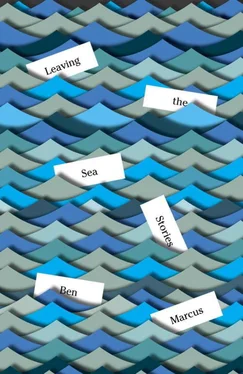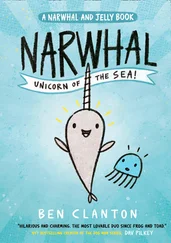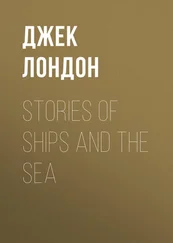Of course they couldn’t, and he panicked, because suddenly he couldn’t, either, even though he’d once taught a whole class on the subject, “Tell Don’t Show,” one of those kill-the-father courses that resulted in a literary body count of zero. But no one seemed to care. They didn’t want examples. The era of illustrating a point was long gone, which made teaching easier, if lonelier. Years ago Fleming would tackle a discussion to a halt, to recommend books, even while his students would look suddenly unplugged, drained of life, because Fleming hadn’t just changed the subject, he’d made them forget their names and why they were there. He would describe the plots of these books, their styles, their techniques, why they were important, and no one ever made a note, even to write down an author’s name. They would blink at him, waiting for his seizure to flare out. In his evaluations, Fleming would learn that students viewed these endorsements not as the kind of resource sharing that universities were meant to enable, but as digressions, beside the point. Stalling, one student called it. And so instead he talked and talked and talked about Timothy’s story itself, devoting more language to it than it contained, a body of criticism outweighing a work that would never be published, trying to praise Timothy without alienating his classmates, most of whom sensed that the story was muted and unreal, an exercise. But Timothy couldn’t be shut down here, Fleming knew. He needed to be encouraged. Get the young man on his back, lift up his shirt, and rub that fucking belly. And yet at the same time Timothy’s classmates could not think their teacher was an idiot pushover who simply praised whatever he read, particularly writing like this, because then what was his praise worth if it ever actually came their way?
Fleming danced the tightrope, throwing coins to each side of the line. If Timothy did not actually purr out loud, at least he seemed content. Fleming’s neutrality in the end must have only made him seem spineless. A politician of the classroom, pleasing precisely fucking no one.
There was time at the end for Timothy to ask questions, and he just thanked everyone. He really appreciated it, nodding through that wondrous beard, rubbing his hands together.
“No questions? That’s it?” Fleming asked.
“I mean, yeah,” said Timothy, sitting back, pleased. “I wrote that story in like two hours so I’m surprised anyone liked it at all.”
Lunch was a buffet. Fleming loaded his plate with pasta, rolls, salad. What he wished was that he could take the food to his room. The walk would be long, the elevator ride conspicuous. He’d have to carry his plate through telescoping dining rooms, up carpeted stairs, then out across the sun-blasted pool deck and along the railing, where you had to practically tiptoe single file or else go overboard. By then his shame would be complete, his food cold. The package he was on didn’t include room service, which meant eating above decks, and that risked eating with students. Or being seen eating alone by students. He wasn’t sure which was worse.
They found him at the kiddie pool, on dessert. There was pretty good-looking pie here, so he’d gone with a piece of chocolate cream. The kiddie pool had a shaded canopy so he could eat without getting reamed by the sun, which was on a tear today. Large men his own age with very different lives stood shin-deep in the pool holding barrel-sized drinks, their shoulders boiling and blistering like the surface of a distant planet.
“Hey, Professor Fleming.” There were maybe five of them, hovering awkwardly. Writers in the sun. Just asking to get shot.
“Hey, guys, sit.” He welcomed them as if this were his own little porch.
They pulled up chairs and sat and looked at him, waiting again. He couldn’t really eat chocolate pie under that kind of scrutiny. Jesus, he thought, did he have to keep entertaining these monsters, even though class was over? This was break time, which meant he needed to replenish his stores of fraudulence for the next round. How else could he summon his artillery of deceit without some pretty serious alone time? He needed a different body to wear around when he wasn’t in the workshop. Or, at the very least, a T-shirt that read: I’M OFF THE CLOCK, BITCHES!
“So what do you think of class?” one of them asked. This would be Franklin, the quiet one with translucent skin. Franklin was a thin, pink person who was either a genius or, well, not one. Chances weren’t.
“I should ask you guys that, right?” Fleming tried to smile through a mouthful of chocolate.
He knew he shouldn’t do this, but he couldn’t help it. It was like asking Erin if she loved him, the conversational sugar he sought out like an addict. What was she going to say? It looked so desperate, so helpless. Maybe because it was. Class had hardly started and here he was groveling for student approval.
“Seriously,” he said. “Does class seem okay?”
They burst out laughing and looked at one another. A merry laughter, he supposed, but still. Already with the knowing looks! They’d hardly even met and here they were being conspiratorial at the fucking kiddie pool.
“We never know when you’re joking,” explained Helen, as if they had discussed this issue at some length. Maybe Helen was the spokesperson.
He smiled. As in when did they not know? What was the phrase that was either funny or serious? Let’s get out the transcript and take a goddamn look. He had yet to joke with them a single time that he could remember.
Here’s a clue, he should have said: I haven’t been genuinely funny in a very long time.
They were back at it in the afternoon. The story was a pastoral, with a nameless man walking through the landscape—the powerful, moody landscape—thinking. The writer, George, was older than the others. He had a large, sad face and he was bald. These men were everywhere. The cattle in our lives we hardly even see. Slowly they are herded into the dark shed to be killed. Fleming hoped he didn’t look like George, but he suspected he looked far worse. Older, sadder, balder, one of the cattle who’d gotten out alive, survived the air gun to the head. A little bit soft of brain, but holding his own. To look like George would be lucky, probably. If he went home looking like George maybe Erin would be intrigued. She’d smile and throw her arms around him, yelling, “Sylvie, your handsome father is home!” The force field around Erin would lift. Love would surge through the house, and people in the surrounding neighborhood would fall to the floor in sympathetic orgasm. Just because Fleming was slightly less fat.
On the first page of his story George had written a note for the workshop:
“Hey everyone! I can’t wait to meet you. Thanks so much in advance for reading my story. Your time means a lot to me. I’d love to hear what you think. Best, George.”
“I don’t know,” said Franklin, cautiously. “It doesn’t seem like anything happens.”
“Can that be okay?” Fleming asked, eyeing the room for a taker. “Do things need to happen?”
Franklin blinked little crumbs from his eyes. He seemed to decide the question was not for him but for the group at large. He retreated in his chair, started to doodle. He must have been exhausted from that amazing opening comment.
Timothy jumped in. “It’s landscape porn.”
Everybody laughed, except George, who seemed bewildered. Was this a compliment?
“What’s landscape porn, Timothy?” Fleming asked.
“It’s just masturbatory images of mountains and lanes and creeks and desert and there’s no drama to any of it. It’s not a story,” said the young bearded man who himself had not written a story.
“Like, what if I described a teacup for five pages? Would anyone care?”
Читать дальше












